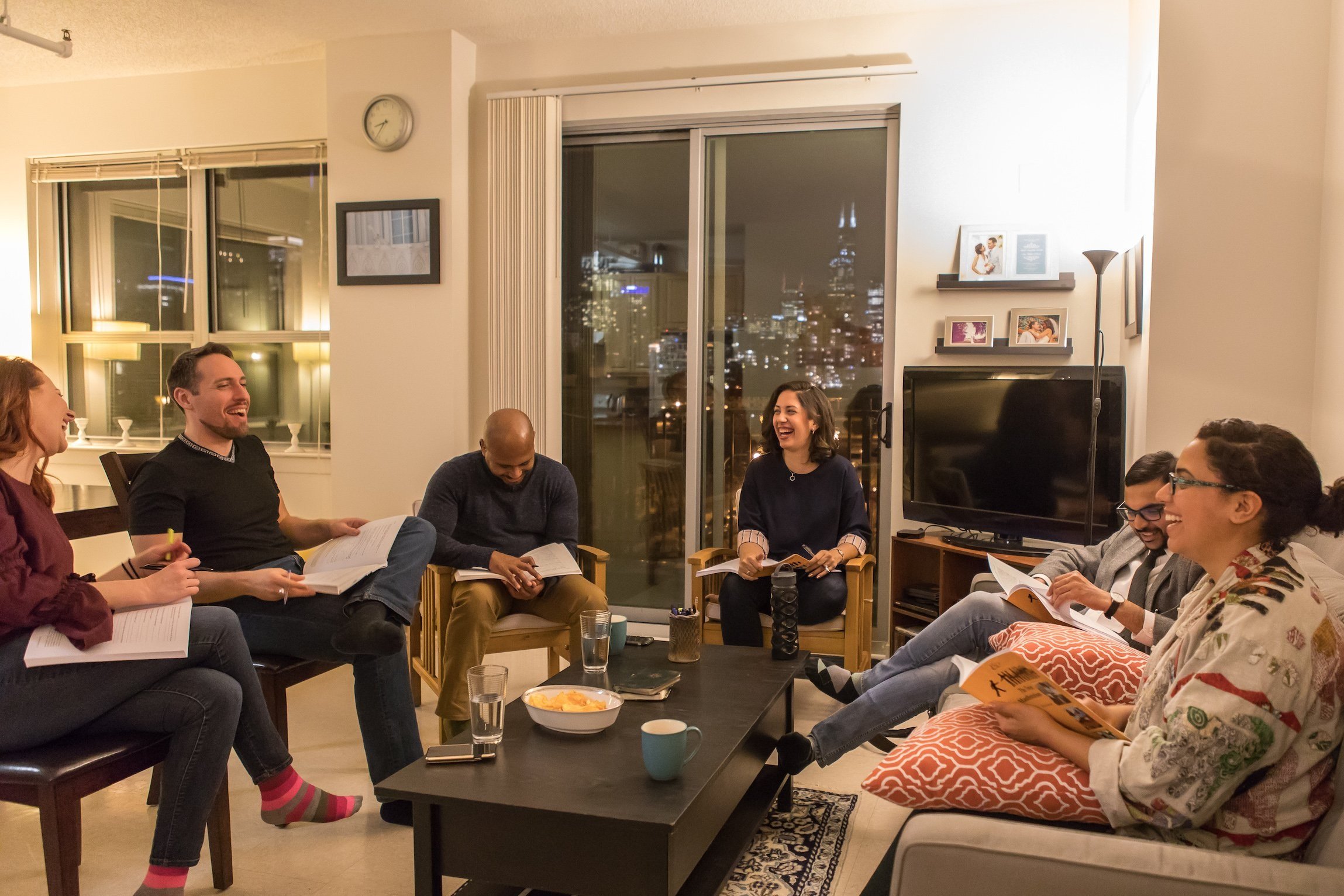Who We Are
The Bahá’ís are members of a global community that believes in one loving Creator, one unfolding religion and one human family.
“The earth is but one country and mankind its citizens.” –Bahá’u’lláh
The Bahá’í Faith is the youngest of the world’s independent religions. Since its inception in Persia (now Iran) in 1844, it has grown to more than five million followers in 236 countries and territories. Bahá’ís believe that there is one loving, all-powerful and unknowable God; the world’s great religions come from God, and that all humanity is one family.
“Ye are the fruits of one tree, and the leaves of one branch. Deal ye one with another with the utmost love and harmony, with friendliness and fellowship.”
—Bahá’u’lláh
The main theme of the Bahá’í message is unity. Bahá’u’lláh, God’s Messenger for this day, taught that there is only one God, that all the world’s religions represent one changeless and eternal faith of God, and that all humanity is one race, destined to live in peace and harmony. There is no clergy in the Bahá’í Faith. It conducts its business through a distinctive system of global administration, which features a network of democratically elected local and national governing councils called Spiritual Assemblies in nearly 200 countries.
What We Do
In neighborhoods across the country, Bahá’ís and their friends are engaged in a community-building process that cultivates love and translates it into action.
America is going through a tumultuous time. Tensions and divisions surface every day, reminding us that the stains of injustice and racial prejudice are set deeply in the fabric of our society. Bahá’ís are committed to reshaping society around principles of oneness by cultivating love, inclusivity, and reciprocity. We hope to join hands with the countless like-minded Americans working for these same goals, and invite everyone to take a look at our approach.
What We Believe
Humanity is one species, one race, one family. In a tumultuous age, world peace is attainable through unity. The global Bahá’í community is building toward this vision.
The central theme of Bahá’u’lláh’s message is that humanity is one single race and that the day has come for its unification in one global society that celebrates the rich cultural diversity of its members.
The principal challenge facing the peoples of the earth is to accept our common humanity and to work together toward a peaceful, just and united world. In the chaos of the last century and a half, historical forces have broken down the traditional barriers of race, class, creed, and nation. Although the process has been frightening and disheartening at times, Bahá’ís believe that humanity is now capable of uniting into a peaceful global civilization.
The worldwide Bahá’í community comprises five million members who represent most of the nations, races and cultures on earth. It is working to build that global civilization based on principles of justice, the equality of men and women, and the harmony of science and religion, among others. They welcome the collaboration of all who share their vision of humanity as one global family and the earth as one homeland.
Bahá’u’lláh’s teachings offer hope to a troubled world. He identified the spiritual principles on which humanity may, with divine assistance, establish lasting peace:
• The oneness of humanity
• Independent investigation of truth
• Elimination of prejudice
• Racial and social justice
• The nobility of each human being
• Equality of women and men
• Harmony between science and religion
• Universal education
• Spiritually guided solutions to economic inequality
• Justice and equity as foundations for world peace

CORE ACTIVITIES OF EVERY BAHÁ’Í COMMUNITY
“If you desire with all your heart, friendship with every race on earth, your thought, spiritual and positive, will spread; it will become the desire of others, growing stronger and stronger, until it reaches the minds of all men.”
Children’s Classes
Children’s classes are where communities work together to lay the foundations of a noble and upright character in the young. Drawing on the teachings of the Bahá’í Faith, the classes aim to inspire in children a love for God and the Founders of all the great religions. By studying sacred verses and talking through the questions that children face in their lives, these classes help children apply spiritual principles such as love, unity and justice to their own lives. These classes include short lessons, games, and art activities.
Junior Youth Spiritual Empowerment
A learning environment where pre-teens can form their moral identity and develop skills which empower them to channel their creative and collective energies towards the betterment of their communities. To respond to the needs of youth and teens at a pivotal point in their development, the Bahá’í s of Chicago offer the junior youth spiritual empowerment program. This program is aimed at building the capacity for moral reasoning and channeling the energy of young people between the ages of 11 and 14, and is carried out in schools, community centers and neighborhoods in Chicago and across the United States.
Study Circles
Small study groups where adults and teens come together to examine core spiritual concepts and translate them into action. Study circles are group study and activity sessions that delve into various aspects of spiritual and religious life, including the life of the spirit, arising to serve humanity and nurturing the spiritual growth of children and junior youth. The purpose of Bahá’í study circles is to cultivate and expand participants’ knowledge, spiritual insights, and skills to enable them to contribute to the betterment of society, starting with their own neighborhoods.
Devotional Meetings
-Devotional meetings are where the spiritual foundation of a community can be strengthened through prayer, song, cultural sharing and mutual support. The heart of a devotional meeting is the sharing of prayers and passages from Holy Scriptures in song, chant, reading and reverent recitation. Devotional meetings reflect the cultural backgrounds of the participants and create an uplifting, spiritual atmosphere. They often take place in the homes of Bahá’ís or their friends, inspiring and energizing all who participate.
Public Discourse
At any given moment, and in social spaces at all levels of society, there are a range of ongoing discourses concerned with various aspects of humanity’s wellbeing and progress: discourses on such subjects as the equality of women and men, peace, governance, public health, and development, to name but a few. Individual members of the Bahá’í community—whether through their involvement in the life of the local community, their efforts of social action, or in the course of their studies, occupations, or professional activities—strive to participate fruitfully in such discourses, learning with and from others and offering their personal insights, informed by the Bahá’í teachings, to the unfolding discussions.
Social Action
Bahá’í efforts of social action seek to promote the social and material well-being of people of all walks of life, whatever their beliefs or background. Such efforts are motivated by the desire to serve humanity and contribute to constructive social change. Together they represent a growing process of learning concerned with the application of the teachings of Bahá’u’lláh, along with knowledge accumulated in different fields of human endeavour, to social reality.








